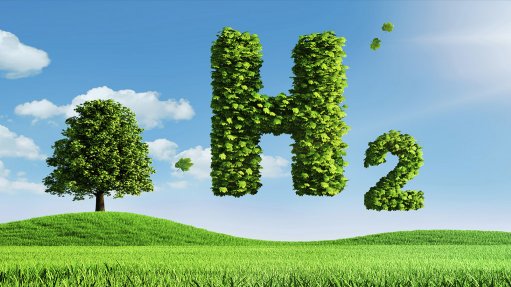
A concessional financing initiative will be launched this year by the KfW Development Bank on behalf of the German Government, seeking to catalyse development of a green hydrogen economy in South Africa. This initiative is underpinned by Germany’s National Hydrogen Strategy which aims to support the establishment of hydrogen supply chains and develop partner relationships to facilitate the accelerated uptake of green hydrogen as part of the global energy transition. The Council of Scientific and Industrial Research (CSIR) and Meridian Economics have been appointed by KfW to provide advisory support in identifying potential target projects to utilise this funding and will release a Request for Information (RFI) on or about June 2021.
Objective: Supporting the growth of South Africa’s green hydrogen economy
South Africa’s rich endowment of world-class renewable energy resources, strong existing technical and financial capabilities, and access to platinum group metals places the country in an extraordinary position to develop a thriving, globally competitive green hydrogen market. The key objective of this initiative is to support the growth of a green hydrogen economy in South Africa by identifying and supporting high impact project opportunities that best exploit the decarbonisation potential offered by green hydrogen. Support to selected projects will be provided in the form of concessional loan finance.
More broadly, the initiative intends to enhance South Africa’s ability to meet its climate mitigation goals, whilst unlocking large international export opportunities as countries across the world develop strategies to ramp up their green hydrogen utilisation.
The funding
A total of up to up to €200 million in concessional loan finance is available to be allocated across a suite of selected projects with fund disbursement required by December 2023. Modest additional funds can be made available for technical assistance to candidate projects for feasibility studies, mindful that the 2023 deadline requires projects to be at least in the pre-feasibility stage already.
The funding will be disbursed via a South African public institution. The public entity will act either as a financial intermediary, on-lending to the recipients (public or private), or as an implementing partner in the project in which case funds would flow directly to the public entity involved.
Scope of eligible project opportunities
A broad range of opportunities will be solicited through the RFI process. Among others, these may include:
- New projects by developers for the production, transportation, export and/or storage of green hydrogen and/or green hydrogen products
- Projects in existing value chains that support the transition of fossil-based processes to green hydrogen, for example in heavy industries, chemicals and transport.
- Offerings from financial institutions, such as innovative financial instruments or funded subsidy mechanisms for stimulating the competitiveness of green hydrogen in the South African market.
Eligibility assessment criteria may include (but not be limited to):
- Project status: the level of project readiness and in particular whether projects can achieve financial close prior to December 2023.
- Value leveraged: the extent to which projects leverage innovative financing or other mechanisms to maximise the benefit that can be derived from the funding provided by KfW.
- Commercial viability: the extent to which the funding will facilitate achievement of commercial viability in a project, and the sustainability of projects into the future once the funding is exhausted.
- Technical feasibility: proposals will need to demonstrate that technologies to be used in the project have been commercially tested. The funding is not for research and development.
- Green credentials: the degree to which a project can be certified as ‘green’ – the primary target for the funding is to support pure green hydrogen initiatives. Loan finance may be made available to projects in existing grey or blue hydrogen value chains but for transport applications only, and only where a clear and credible transition pathway towards green hydrogen in the near future (3–5 years) is demonstrated. Loan terms for such transitional projects will be subject to achievement of tangible milestones in respect of the agreed transition pathway.
- Decarbonisation efficiency: tonnes of avoided carbon emissions per € of funding utilised.
- Certification: the ease and extent of required certification depending on hydrogen and energy sources.
- Implementation Capacity: credentials of the implementation unit or project developer.
Other Exclusions:
Projects that fall under the KfW exclusion list cannot be funded
Projects cannot be co-funded by other federally funded German initiatives e.g. H2 Global, IKI, or similar
Further Information: Further information about this initiative will be made available with the release of the RFI. Given the target timeline for disbursement of the funds, the RFI return period is expected to be short. Interested parties are encouraged, to the extent possible, to advance preparations for this opportunity.
Interested parties meeting the initial qualification criteria outlined above are encouraged to submit a short project summary (no more than 450 words) ahead of the announced RFI, describing the nature of their project and the quantum of funding required in order to succeed. Such submissions are not compulsory but may be used to inform the compilation of the RFI, ensuring the full scope of viable potential opportunities are considered. All submissions will be treated on a confidential basis and will be used for information purposes only. Responding interested parties are still required to follow the requirements and process of the RFI and any tender or procurement process that may subsequently take place.
Summaries may be sent to Hydrogenproject@csir.co.za up until Friday 4th June 2021.